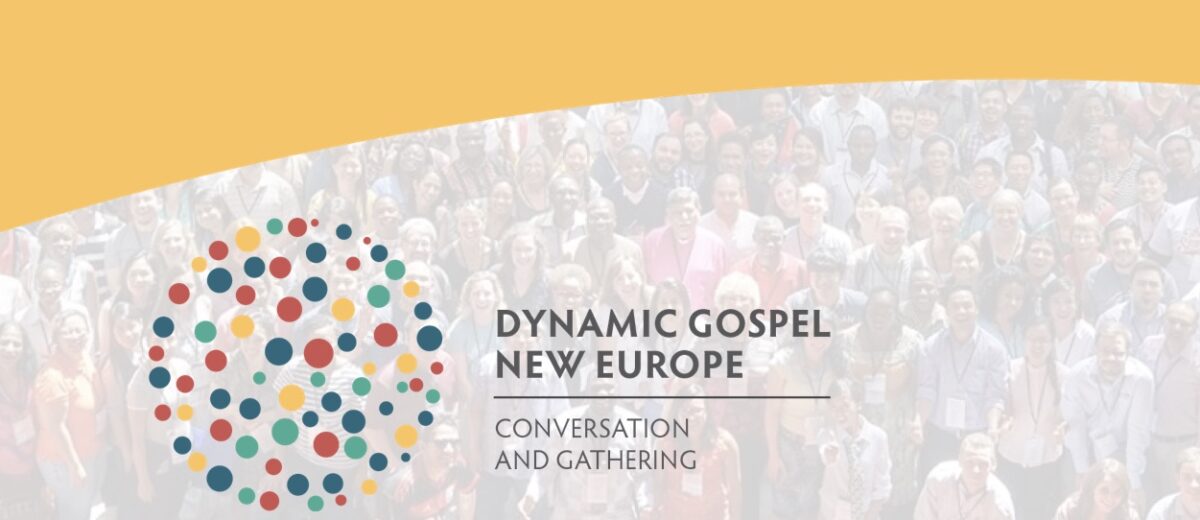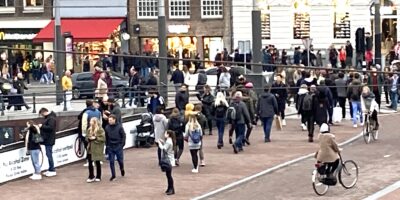Just over a year ago, I wrote about a gathering of 800 European evangelical leaders originally to have been held in Wisla, Poland, under the umbrella of the Lausanne Movement.
The event was to address the challenges of a continent facing crises: politically, economically, socially, environmentally, and spiritually. But yet another crisis, the COVID pandemic, forced the event to be delayed a year until this November, next month.
However, after recent medical expertise advised that it still would be irresponsible for a face-to-face gathering, it was decided to proceed with an online Gathering. The risk of Lausanne Europe 20/21 becoming a superspreader event through delegates returning home carrying new strains of the virus remained significant.
“Every disadvantage has an advantage”, said Johan Cruyff, the late Dutch philosopher (sorry, footballer). This set-back also means that many more people can participate in the whole programme online. The event starts on Wednesday 17th November at 17.00 CET and concludes with a worship service at midday on Saturday 20th.
All those who participate, request the organisers, need to be in agreement with the Lausanne Covenant, which, providing theological foundations for modern global missions, is one of the most significant documents in modern church history. They also want to maintain a balance of men and women, native European and diaspora leaders, pastors and workplace professionals, and so on. Registered participants are asked to pass on invitation letters to up to twelve others from their own sort of constituency: i.e. women invite women, diaspora leaders invite diaspora leaders, under-35s other under-35s and so on.
If you would like to follow some of the online content but not participate fully in the Gathering, it will be possible to view some plenary streams for free via YouTube. You can register here.
As I have written earlier, I am a believer in strategic events that connect leaders, stimulate networks, broaden vision, impart faith and release hope. We need others from different backgrounds to help us think outside our own box. We need to be stimulated and challenged by other traditions and different perspectives, not just hearing like-minded views from within our own bubble. We need to hear what God is doing in other parts of Europe, news usually ignored by the media, and to discover that God has not abandoned Europe.
‘Lausanne’?
So how did this global movement get to be named after a Swiss city? The Lausanne Movement came out of the First International Congress for World Evangelisation held in Lausanne on the shores of Lake Geneva in July 1974. Billy Graham and John Stott were the two main initiators, bringing together many disparate evangelical groupings around the globe in a spirit of unity and corporate inquiry into the meaning of the gospel for a world in transition. The meeting of over 2,400 participants from 150 nations, including my then-future wife, proved to be a watershed moment for contemporary Christianity, and was described by TIME magazine as ‘a formidable forum, possibly the widest-ranging meeting of Christians ever held’.
‘Lausanne’ signalled the acceptance of the ‘two-handed gospel’, or holistic mission, when the socio-political implications of the Good News were recognised as integral to the spread of God’s kingdom. Prior to Lausanne, many evangelicals viewed social engagement as the domain of liberals and half-believers, a betrayal of the commitment to simply ‘preach the gospel of salvation’. Two Latin American speakers in particular, Rene Padilla and Samuel Escobar, brought prophetic challenges to their western listeners urging the necessity of both evangelism and social justice in mission.
Lausanne II was held in Manila in 1989 during the momentous changes in the imploding communist world. Lausanne III, in Cape Town 2010, reflected the growth of the global church in the majority world.
LE 20/21 is the first European regional gathering since Cape Town, and comes as the world experiences huge shifts through the pandemic, but politically and socially as well. The immense implications for mission in, to and from Europe demand prayerful reflection and discussion.
Online study group
A few weeks ago, I wrote about a report written by Jim Memory, Europe 2021, analysing the political, social, economic, environmental and technological contexts in which we find ourselves labouring today, factors we too often ignore in mission circles. I called the study an ‘evangelical rarity’ because it looks at the big European picture.
A new discussion guide is now available for this report. As preparation for the LE20/21, I would like to invite you to join me online in working through this guidebook together, in three evening sessions: 19:30-20:30 CET, Wednesday Oct 27 (General context), Nov 3 (Spiritual context), Nov 10 (Trends in mission). Respond to me at jeff@schumancentre.eu, and I will send a zoom link to you.
See you online?
Till next week,



